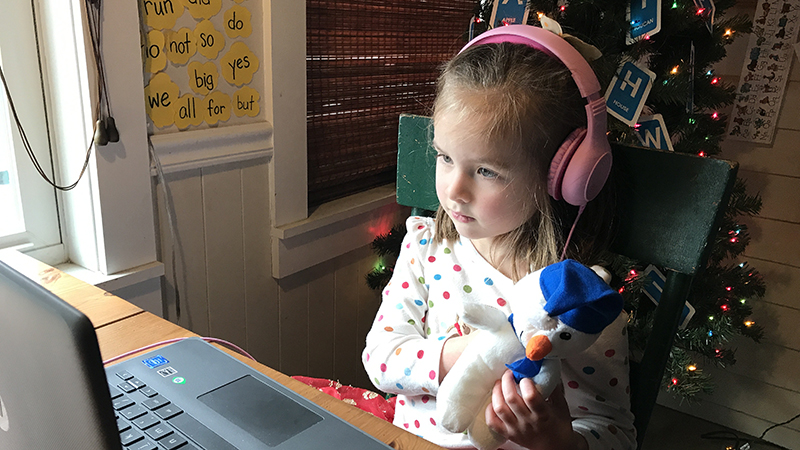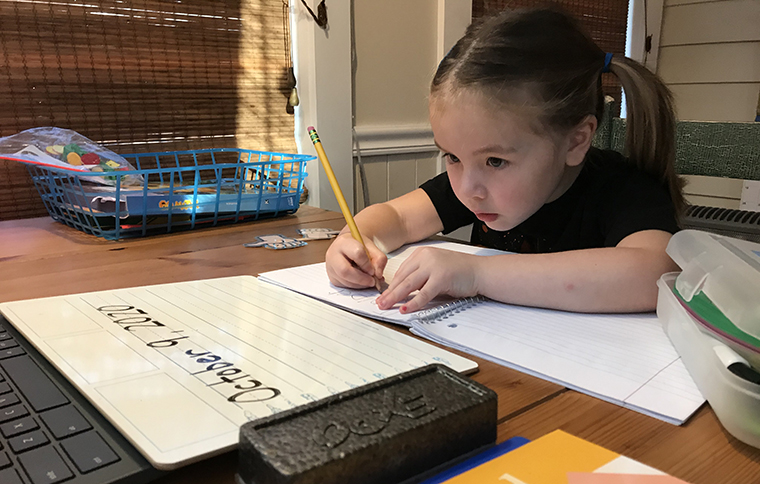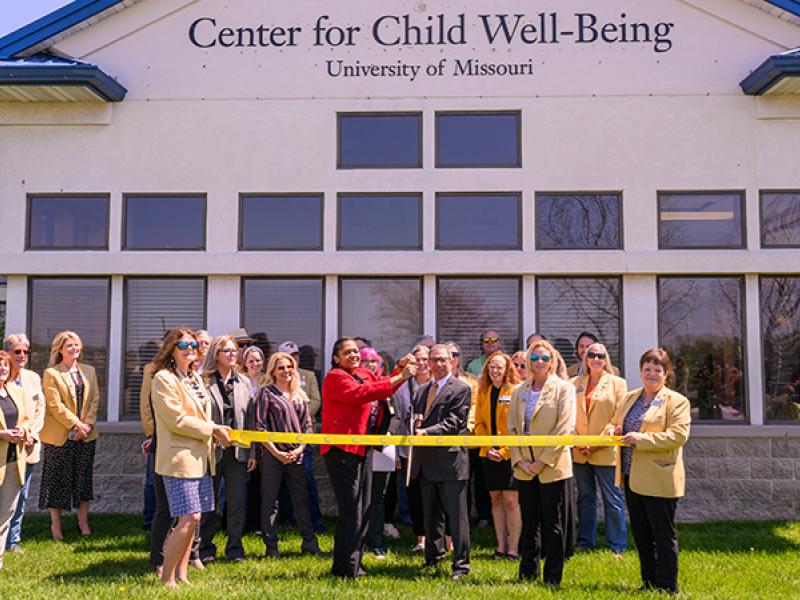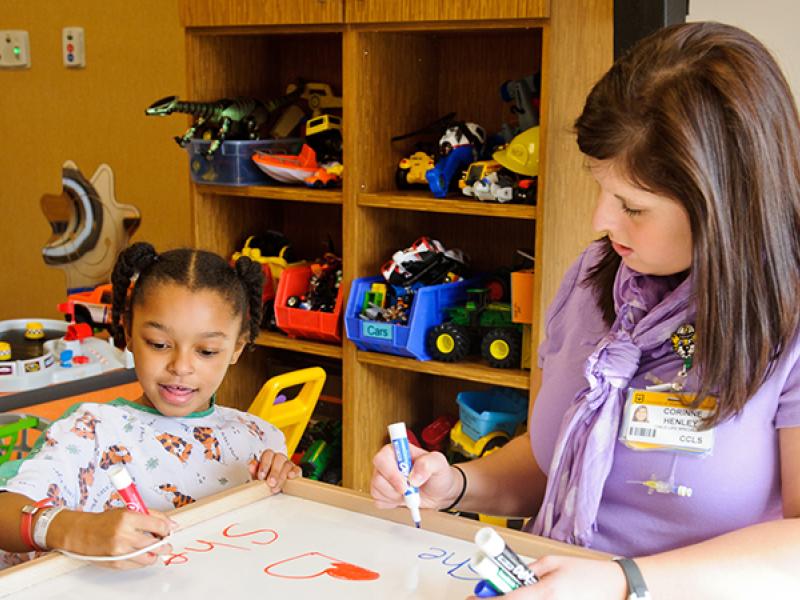
Juniper Phillips is a 5-year-old girl who loves to draw, color and write books about her stuffed animals with her brother Jack. The youngest of three, she fills her St. Louis home with laughter and fun.
But when she met people outside her immediate family, she required a long warmup period to get comfortable. Juniper wouldn’t speak, became visibly distressed and complained of stomachaches.
“We originally thought that she was just extremely shy,” said her mom, Polly Phillips. “People assumed she was just being stubborn when she wouldn’t speak, but I knew something wasn’t right. As her mother, it was really hard to see my daughter in turmoil.”
Margaret Schmandt, MD, Juniper’s doctor at Forest Park Pediatrics, wasn’t too concerned at first, as many children go through similar phases. However, when Juniper reached school age and the behavior didn’t improve, Schmandt turned to the Missouri Child Psychiatry Access Project, a statewide program led by Laine Young-Walker, MD, chair of Psychiatry at the School of Medicine in Columbia.
The project quickly connects pediatric primary care providers with child and adolescent psychiatrists for phone consultations, provides them with information about available community-based behavioral health services and offers training sessions to improve their knowledge, skills and confidence in treating behavioral health issues.
In July 2020, Juniper was diagnosed with selective mutism, an anxiety disorder characterized by an inability to speak or communicate in social settings.

“So many people thought my daughter was being stubborn and just didn’t want to learn,” Phillips said. “She just started virtual kindergarten this year, and it’s actually better so she can ease into it. I sit by her while she’s in class, and I can see her wringing her hands when she’s feeling anxious.”
The project also helped Phillips find Kristin Effan, a follow-up coordinator with MO-CPAP who is based in the St. Louis area. Effan calls Phillips each week to check on Juniper’s progress, provide referrals to get Juniper connected with mental health services and help Phillips better understand the diagnosis.
“Kristin is a lifesaver,” Phillips said. “It’s easy to feel alone right now, but it’s nice to know that someone is advocating for my child. I look forward to her call, and she’s always willing to answer all of my questions.”
For Effan and other employees of MO-CPAP, the best part is offering families the support they need. MO-CPAP started out as an idea Young-Walker had in 2013. A task force was put together to make her vision a reality. The program was funded and officially began in 2018 in St. Louis before expanding to serve central Missouri in 2019. In October, the program was funded to expand services to all of Missouri.
“There are so many children that may be dealing with undiagnosed issues,” Young-Walker said. “The quicker you identify what’s going on, the less likely they are to have greater issues down the road.”
Young-Walker aims to help providers feel more comfortable in managing the care of children with behavioral health needs. Enrollment in the project is easy and free for providers. More than 450 have already enrolled.
“It affects doctors, patients, families and anyone that comes into contact with children,” Young-Walker said. “Helping children function is helpful for everyone in the community, and it has the power to provide a better future for the children.”
The project provided Phillips with the connections needed to make a positive impact on Juniper. She began therapy through play, known as “theraplay,” to help her deal with the anxious moments that cause her mutism. Juniper loves it and has been opening up more. She also is being set up with a child psychiatrist.
“Establishing a routine has really helped her feel more comfortable,” Phillips said. “I’m still learning what to do, but I’m so glad that MO-CPAP has been here to guide me and give me advice when I needed it most.”





